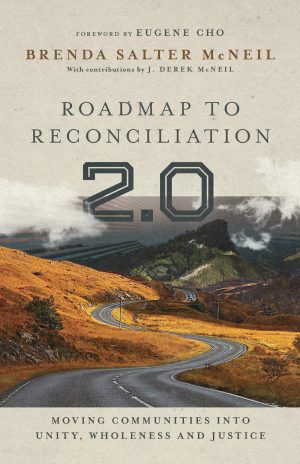The Bible begins with a family and ends with a multitude. Its narrative arc thus includes unity and diversity. Because of creation, all who bear the image of God are also children of Adam and Eve. Because of the new creation, the “great multitude” gathered before God’s throne in adoration encompasses “every nation, tribe, people and language” (Revelation 7:9).
We do not live at either the beginning or end of the biblical story, however. We live in the middle, in a world divided by sin from God and from one another. The reason Jesus Christ entered the world was to overcome both divisions.
The apostle Paul makes this clear in Ephesians 2:15–16, where he writes: “[Christ’s] purpose was to create in himself one new humanity out of the two, thus making peace, and in one body to reconcile both of them to God through the cross, by which he put to death their hostility.” The Cross, in other words, is the place where Christ reconciles us both to God and to one another.
The Church’s mission, following in Christ’s steps, is to advance the work of this twofold reconciliation in both word (the gospel we proclaim) and deed (the gospel we practice). In my opinion, American Christians are better at the former than the latter. We have well-developed systems of evangelism but underdeveloped systems of racial reconciliation.
Brenda Salter McNeil’s Roadmap to Reconciliation 2.0 helps rectify that problem by outlining how Christians can pursue racial reconciliation personally, in their churches, and in their communities.
She defines racial reconciliation as “an ongoing spiritual process involving forgiveness, repentance and justice that restores broken relationships and systems to reflect God’s original intention for all creation to flourish.”
She then outlines “five primary landmarks as signs that will produce lasting personal and cultural change in people and groups” committed to such reconciliation:
- catalytic events: “painful but necessary experiences that happen to individuals and organizations that serve to jump-start the reconciliation process”;
- realization: “a state of awareness that requires a response because it literally changes everything we thought we understood about an experience”;
- identification: “where we begin to identify with and relate to other people who are experiencing the same thing”;
- preparation: where we move “from the personal and relational to the structural and the transformational, and the gap between the two is huge”; and
- activation: where we begin “to repair broken systems together.”
Throughout the book, Salter McNeil roots her counsel in biblical teaching, insights from social science, historical analysis, and long personal experience doing the work of racial reconciliation. The result is theologically rich, thought-provoking and eminently practical.
Salter McNeil argues that efforts at racial reconciliation usually break down in the preparation phase because personal relationships begin to impinge upon powerful structures. “Folks typically tend to gravitate to the first half of the model, engaging in the realization and identification phases with urgency and focus,” she writes.
Building personal relationships across lines of race and ethnicity is comparatively easy. Changing powerful structures is really hard. In the end, though, she writes, “relational connections cannot be sustained without structural intentionality.”
America is at an inflection point, and its churches have been given a kairos moment. The deaths of Ahmaud Arbery, Breonna Taylor and George Floyd, among others, have reopened the wounds of our nation’s longest injury, and the Church has a gospel capable of healing it through a call to repentance, the offer of forgiveness, and a commitment to justice.
At this moment, whether the nation hears that gospel may very well turn on whether it sees Christians putting racial reconciliation into practice first.
Book Reviewed
Brenda Salter McNeil, Roadmap to Reconciliation 2.0: Moving Communities into Unity, Wholeness and Justice (Downers Grove, IL: IVP, 2020).
P.S. If you liked this review, please click “Helpful” on my Amazon review page.
P.P.S. This review appears in the July-August 2020 issue of Influence magazine and is cross-posted here by permission.

